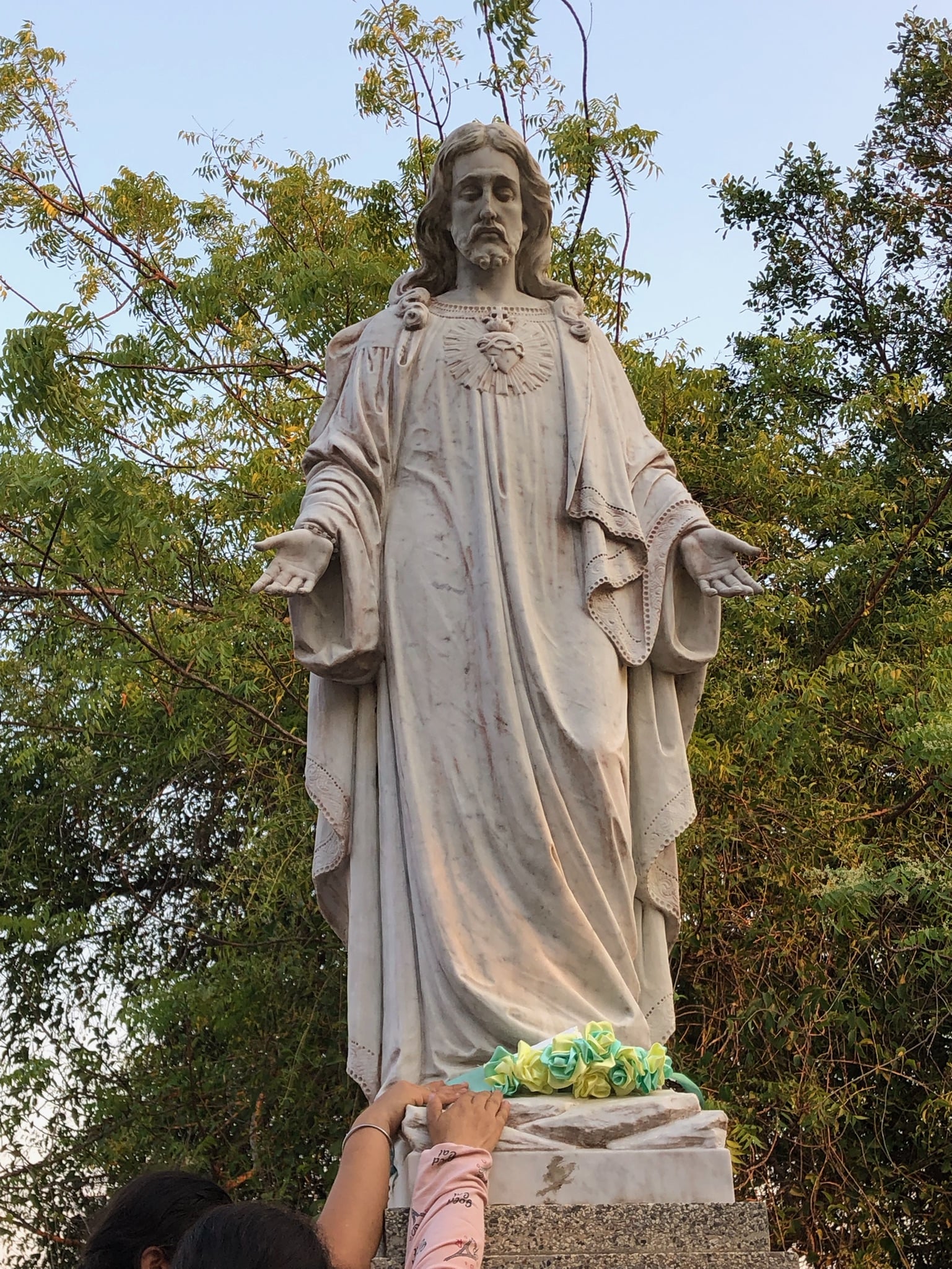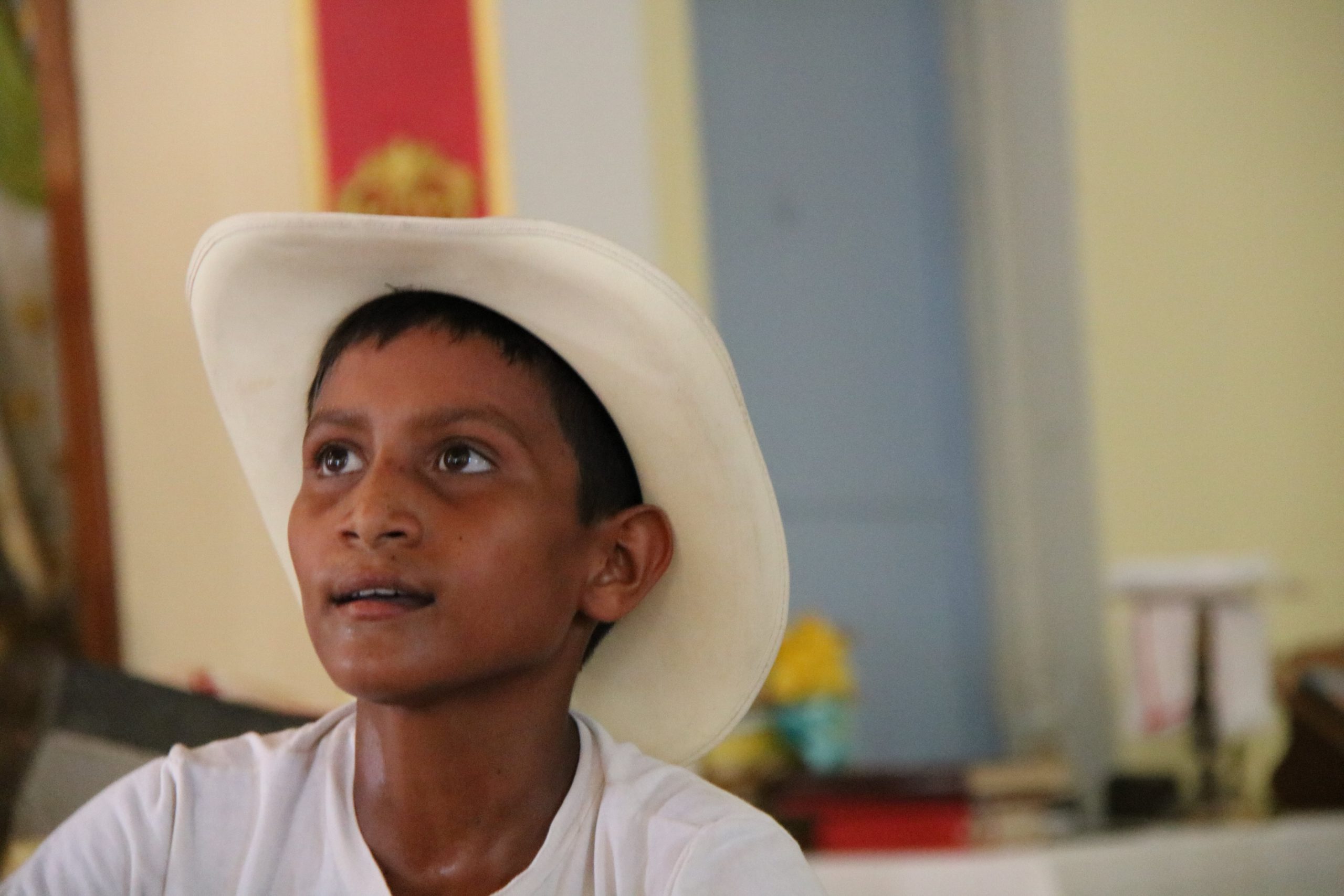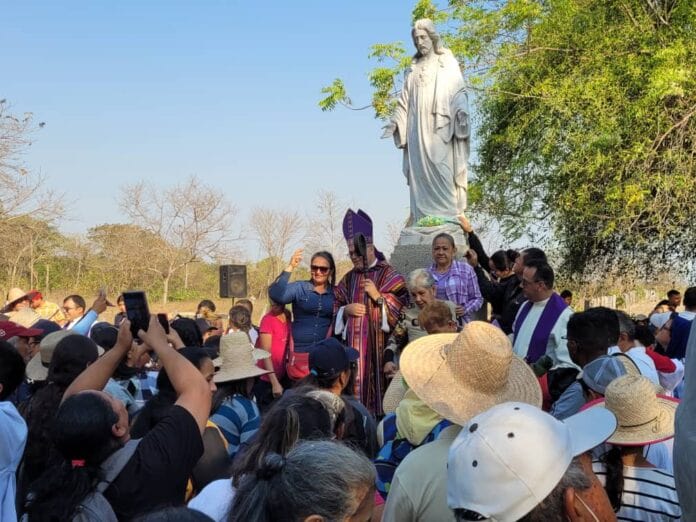The wide plains of Upper Apure, in southwest Venezuela, are a meeting point for Andean heritage and the identity of the plain dwellers, with a strong indigenous presence and contact with Colombians just across the border. In the middle of this landscape rises the Christ of the Savannah, which has become a symbol of faith, identity and resilience for the Diocese of Guasdualito, which was created only nine years ago, in December 2015, and is supported by Aid to the Church in Need.
The story of the Christ of the Sabana began in the wide-open plains of Venezuela, a land where living is rough, that is neglected by the state, oppressed by the violence of armed groups, who operate outside the law, and also has a high rate of illiteracy and poverty. This is a region that is unknown to most of the world, and which even the Church found difficult to access before the Diocese of Guasdualito was created.
According to historical accounts, some children on the Trinidad de Arauca ranch said they had seen a mysterious lady in the area, a “very beautiful lady, but with a beard”, whose heart was visible under her tunic. The children’s story reached the owner of the ranch, José Natalio Estrada Torres, who decided to commission a statue of Christ from Italy, but without detailed specifications. To everybody’s surprise, instead of a crucified Christ the Italians delivered a majestic Sacred Heart of Jesus made of Carrara marble, measuring almost two meters and weighing 900 kilograms.

It was placed on a dune, overlooking the Arauca River, with an inscription at its base that says: “Lord, bless our plain”. That was the origin of Christ of the Sabana, also known as Christ of the Mata, which the first Bishop of Guasdualito, Pablo Modesto, describes as “a tangible expression, in the midst of this immense landscape, that God also remembers this land”.
This spot is a symbol of unity and diversity in the Upper Apure. Soon after, inspired by the poem Paint Me Little Black Angels, the owner of the ranch commissioned four angels of different ethnicities: white, black, mestizo and indigenous. “Placed in a semi-circle around the Christ, these angels symbolise the cultural richness of the plain and the need for fraternity. This is important in this part of Venezuela, which is home to plain-dwellers, Andeans, indigenous and Colombians, making it important to develop an identity that embraces hospitality, honesty and work as essential values,” the bishop tells Aid to the Church in Need (ACN).
In 2022, a tradition began of going on pilgrimage to this image on the first Saturday of Lent. “We realised that there was a latent popular devotion, although the place was very neglected, but it is an opportunity to contribute to our mission of fostering religious identity in this region and a sense of community,” the bishop tells ACN.
The Diocese of Guasdualito faced many challenges and difficulties in its earlier years, since although it had some infrastructure, it had little in the way of economic and human resources, with only a few priests and religious in its first years. ACN has supported the diocese since its creation through various projects, such as the construction of a curia, and a pastoral centre, and through the provision of Mass stipends to local priests.
Bishop Pablo, a Salesian, is used to going out to meet with his faithful and does not shy away from the problems and difficulties he faces. During an ACN project trip to the region, he told how once, just as he was about to start to celebrate Mass, he noticed that everybody began rushing out of the church. When he asked what was going on, he was told that after several months of shortage, a supply of fuel had just arrived. Joining the crowd, he began to sing and to praise God, sharing in a great moment of faith with hundreds of people, believers and non-believers, who were waiting in line.

“What matters is to be among the people, to take God to them. Since I began my first visits to the diocese, I have insisted on the importance of simply socialising, the call to reflect Trinitarian love through our daily lives,” he explains, recalling that “Jesus teaches us that we will be judged by our works of love and compassion towards those most in need. Faith is not only about carrying burdens and sacrifices; it is also about joy and hope. In a world often marked by despair, we are called to be witnesses of God’s joy.”
In January 2025, Pablo Modesto was named Bishop of La Guaira, which is 900 kilometres away. He is sorry to leave Guasdualito – to leave its honest people, who suffer under uncertainty, economic hardship and the presence of armed groups. His tenure left its mark on the lives of the inhabitants, and the Christ of the Sabana has become a spiritual refuge for the diocese. “I asked for a stay so that I could be in Guasdualito until the pilgrimage of 15 March. This is a very important moment for our people, a reminder that, in the most unexpected places, in the witness of a humble community and the immensity of the plains, God is present.”


